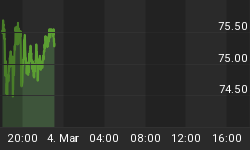As Charles Kindleberger asks in the investment classic Manias, Panics and Crashes; "the essence of financial distress is loss of confidence. What comes next - slow recovery of belief in the future as various aspects of the economy are corrected, or collapse of prices, panic, runs on banks, a rush to get out of illiquid assets and into money?"
Our timeline of financial distress is below:
From Foreclosures To Bank Failures
The FDIC is going on a hiring spree in anticipation of "an increase in failed financial institutions as the nation's housing and credit markets continue to worsen." Jim Marino of the FDIC's Division of Resolutions and Receiverships states "the notion that a bank is too big to fail shouldn't be out there." As we explained last month, the U.S. banking system is borrowing their entire reserves, currently -$17B, from the Federal Reserve. TheStreet.com also reports that "non-current loans exceeded reserves for the first time since 1993." On Feb 28th, Ben Bernanke said there probably will be bank failures as the housing slump takes its toll. According to the FDIC Quarterly Banking Report:
"Total noncurrent loans -- loans 90 days or more past due or in nonaccrual status -- rose by $26.9 billion (32.5 percent) in the last three months of 2007. This is the largest percentage increase in a single quarter in the 24 years for which noncurrent loan data are available. Eight institutions accounted for half of the total increase in noncurrent loans in the fourth quarter, but noncurrent loans were up at half of all insured institutions. The percentage of loans that were noncurrent at year-end was 1.39 percent, the highest level since the third quarter of 2002."
We called the FDIC to inquire about the eight institutions that accounted for half of the total increase and were told this information is not available to the public.
They Can Sell Faster Than You
We also mentioned in September that twenty-six Florida cities defaulted on their bonds after the real estate bubble of 1927. Now Vallejo, CA is in trouble. We expect the same thing that happened 80 years ago and recommend investors to avoid municipal bonds. This will also be a complete surprise to bond insurance firms. Banks are already working on a capital infusion for the insurers due to their subprime losses. The insurers' rating is supporting the value of $2.4T in loans held mostly by banks and as CNBC reports "the banks and the rating agencies are aware that, if it (Ambac) collapses, there will be a huge decline in the stock market."
The Wall Street Firms will know if the Ambac deal fails long before investors. We commented last April: "As the editor of The Commercial and Financial Chronicle in November of 1929 reported on the Great Crash, 'the crowd didn't sell, they got sold out.' The trading desks of the Wall Street Firms will cash out as the panic develops, the lady in Omaha will be stuck on the phone with a busy signal... To avoid this, investors should be moving now to financially healthy institutions and buying U.S. Treasury Bills."
At Lamont Trading Advisors, we provide wealth preservation strategies for our clients. For more information, contact us. Our monthly Investment Analysis Report requires a subscription fee of $40 a month. Current subscribers are allowed to freely distribute this report with proper attribution.
***No graph, chart, formula or other device offered can in and of itself be used to make trading decisions.
















